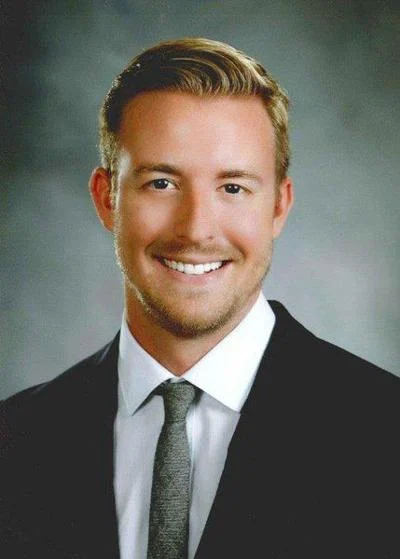There's more than one way to privatize education.
Ryan Walters graduated from Harding University ("Faith, Learning, Living"), a private Christian university in Arkansas. The school was founded in 1924, and maintained advocacy of pacifism and political neutrality until the cold war, when it came out hard for free-market capitalism (they even produced some animated cartoons to help defend against Godless Communism).
Harding's record on segregation is not great. Then
President George Benson was a big crusader against communism, but he didn't much like integration, either (Black folks, he thought, were inferior because of that whole Curse of Ham thing). In 1957 a petition circulated on campus saying that Harding was ready to integrate; 75% of students, faculty and staff signed it, and Benson dismissed it as youthful idealism. They finally accepted three Black students in 1963. They hired their first Black faculty in 1980. By 2019, 4.7% of the student body was Black. To their credit, many students and alumni pushed the school to do better.
Benson also founded the college's National Education Program, which was based on three principles: belief in God, belief in the Constitution, and belief in the free enterprise system. In short, good old Christian nationalism. It gave Benson his fifteen minutes of national fame in forties, but NEP had to be spun off from the college (it got in the way of Harding's accreditation). Benson remained head of NEP long after he retired from the college in 1965.
So Ryan Walters graduated from Harding in 2010 with a Bachelor's degree in History. He returned to his home town of McAlester in 2011 to teach high school history, where he did well enough to be named McAlester Public Schools Teacher of the Year in 2015 and draw a finalist spot for Oklahoma's TOY award in 2016.
That put him in touch with folks at the state level. In 2018 he was appointed to the Oklahoma Community Service Commission, and the next year, newly elected Governor Kevin Stitt to the Commission for Educational Quality and Accountability.
In 2019 he gave up his teaching gig to serve as the executive director of Oklahoma Achieves, the state Chamber of Commerce initiative that pulled big bucks from, among others, the Walton Family Foundation. Oklahoma Achieves would soon transform itself into Every Kid Counts Oklahoma, a "new education reform organization" that wants to give everyone "access to quality education." EKCO has been especially reluctant to provide their required IRS disclosure forms, but The Oklahoman did pry some info loose; donors include the Waltons, Yes Every Kid (a Charles Koch operation).
Walters was offered the top job for EKCO in March of 2020. In May of 2020 he went to work. March of 2020 was also the month in which President Biden Trump* signed the CARES Act, which included the Governor's Emergency Education Relief Fund (GEER). Oklahoma started pulling its money out in July of 2020, feeding a chunk of that money into a voucher program that would be handled by newly created Bridge the Gap, a program funded by GEER money but operated by Every Kid Counts Oklahoma, who in turn would hire ClassWallet, the Florida-based ed voucher management company. In August of 2020, Michael Rogers, who was serving as both Secretary of Education and Secretary of State, stepped down from the education post.
In September of 2020, Governor Stitt announced that Walters had been appointed to fill the spot of Secretary of Education, while also declaring that the post would be an individual cabinet position. In his mid-thirties, Walters is the youngest to ever serve in the post.
Walters hit the ground running. Already well-connected, he made an appearance at Jeb Bush's Edu-palooza in a presentation about how to launch a voucher program in just four weeks; the spot was sponsored by ClassWallet. It was such a hit that ClassWallet had him do it again for their Youtube channel in February of 2021.
And once Walters decided to run for state superintendent of public instruction ('proven record of winning the fight for our strong, conservative agenda"), he started singing from the culture warrior hymnal. He had previously dabbled in writing for The Federalist, but in 2022, candidate Walters really stepped it up.
He warned textbook publishers not to put any of that nasty CRT stuff in their books (and took flak for it). He "urged" a school district to prohibit students who were born "biological males" from using female bathrooms, claiming they had misinterpreted Title IX. As reported in the Stillwater News Press: "The US Department of Education’s rules, that your school board claims ordered this travesty, simply allowed school districts to choose their own path – and Stillwater has chosen poorly,” Walters wrote. “You have chosen radicals over your students, ideology over biology, and ‘wokeness’ over safety.”
And he contributed a piece to Fox News: "Listen up, teachers: stop going woke." Walters, who is apparently still teaching at least one course, declared, "I will continue to teach my students the United States is the greatest nation in the world." Also, "The far-left's attempts to destroy our nation's history and indoctrinate our children must be stopped." And he has a busy Twitter page where he sometimes posts videos railing against any of the far-right shibboleths of the day.
Walters has run into trouble for failure to disclose campaign finances. And that voucher program that he whipped together in just four weeks has turned out to be a mess. A federal audit gave the program lowest marks all across the board; digging by The Oklahoman revealed that federal GEER money ended up being spent on everything from Christmas trees to gaming consoles, with virtually no oversight by... well, anyone. ClassWallet, which had landed the contract for running the program without having to bid, quickly ducked responsibility (We were just following the rules we were given). Dems called for Walters' removal from office, to which Governor Stitt said, "Nope. He's swell."
Stitt has no reason to want Walters gone from the job, but now there's some question about Walters' real day job might be. Remember that executive director job that Every Kid Counts Oklahoma that Walters took months before his appointment to state education chief. He's stayed busy there; EKCO has advocated for education privatization, charter expansion, voucher growth-- all the usual. And Walters was well paid for the work.
Exactly how well paid has been fuzzy, largely because Stitt just vetoed a bill (passed by both sides of the legislature) that would have required state officials to disclose outside revenues and salaries. But according to The Oklahoman (Clifton Adcock, Reese Gorman, and Jennifer Palmer of Oklahoma Watch and The Frontier have been all over this story), Walters was hired for a $100,000 salary, with a requirement that he had to be paid at least 20% higher than the second-highest paid employee. His original contract called for an option of a minimum $20K raise after the first year.
So he's likely making at least $120,000 from EKCO.
His salary as secretary of education from the state of Oklahoma is $40,000.
Let me say that again.
The Oklahoma state secretary of education has, as his primary source of income, at least $120,000 from a darkish money education reform group funded by, at least, Walton and Koch money. The state pays him a mere $40,000.
So who is Ryan Walters' main employer? Not the state of Oklahoma. But his job with the state certainly puts him in charge of certain decisions about which his primary employers have a big interest.
Quoted in the Oklahoman piece is Delaney Marsco, senior attorney for ethics at the Campaign Legal Center, a nonprofit government watchdog group:
If you are responsible for making decisions in a certain area of the government and you are being paid by an outside organization that has an interest in that, that absolutely can be a conflict of interest. If you are a public servant, your duty is to the public, and anything that kind of calls that into question, even raises the appearance of a conflict of interest, is a problem.
That sounds about right. There are lots of ways to privatize education, but buying state education officials is certainly one of the more direct ones. Never mind sneaky money slid under the table; just put him on the payroll.
The Oklahoma primary will be on
June 28; Walters is running against three other GOP candidates for the post.
John Cox is a long-serving educator, most recently a school superintendent. His platform includes reduced class size, eliminating A-F school evaluations, and making public education a priority. Yes, he's really running as a Republican (but he ran in previous cycles as a Dem).
April Grace is a long-time educator as well; she's running as anti-CRT, anti-bureaucratic red tape, and anti-school closures.
William Crozier has run for state office before; way back in 2006 he ran for state superintendent with his campaign committee "Crozier for Superman" (that was four years before "Waiting for Superman" came out, so I'm not sure what he was thinking) and proposed bullet-proof textbooks (there is
a video of him demonstrating his idea--really). I'm no Oklahoma political expert, but I have a feeling that Crozier is not a strong contender here.
Will Oklahoma stick with a chief official who actually works for someone else? And how much money will his employers put into the race to keep him somewhere that is handy for them? Stay tuned, folks.
*Originally I mis-attributed the Presidency in 2020






